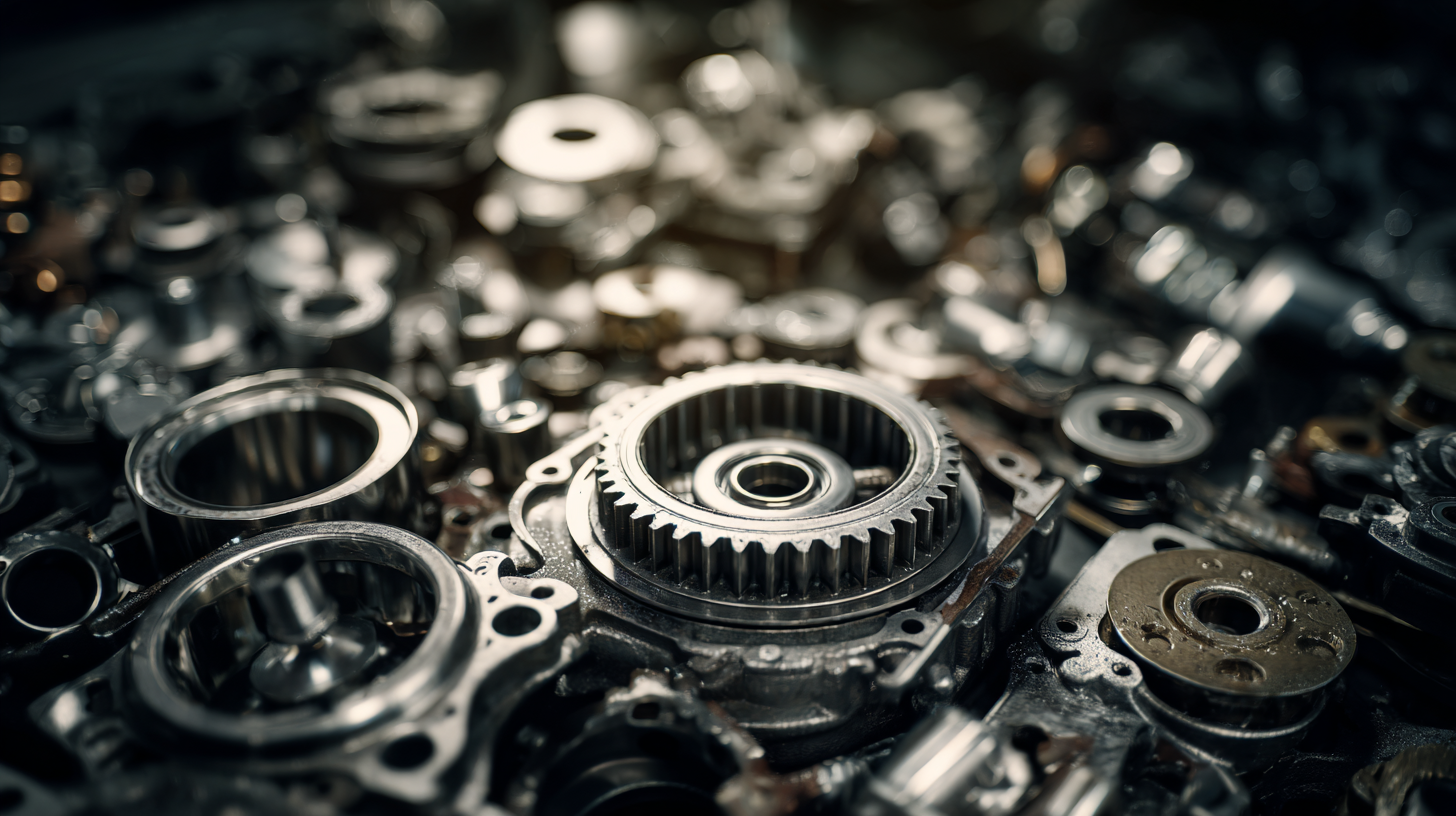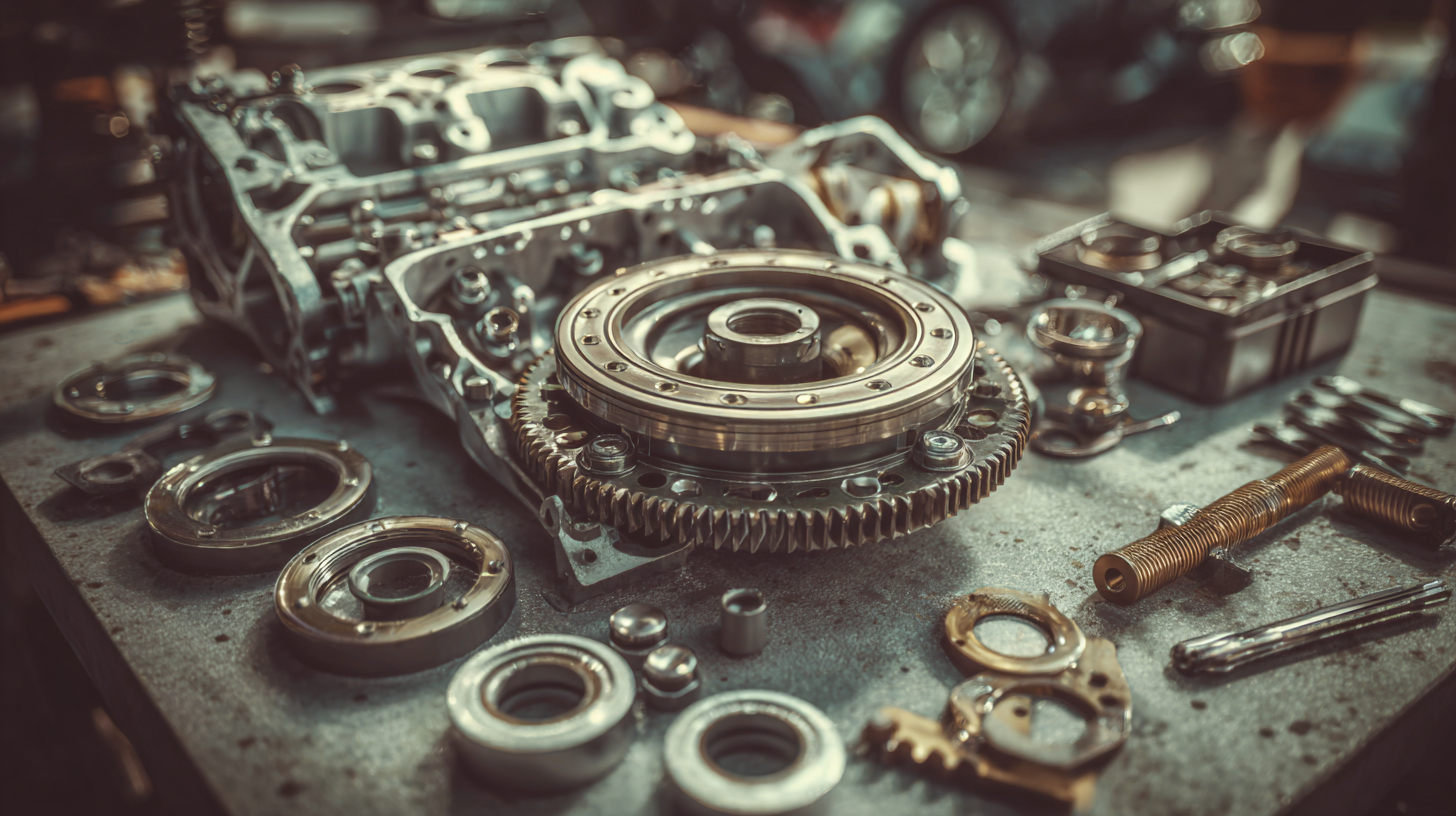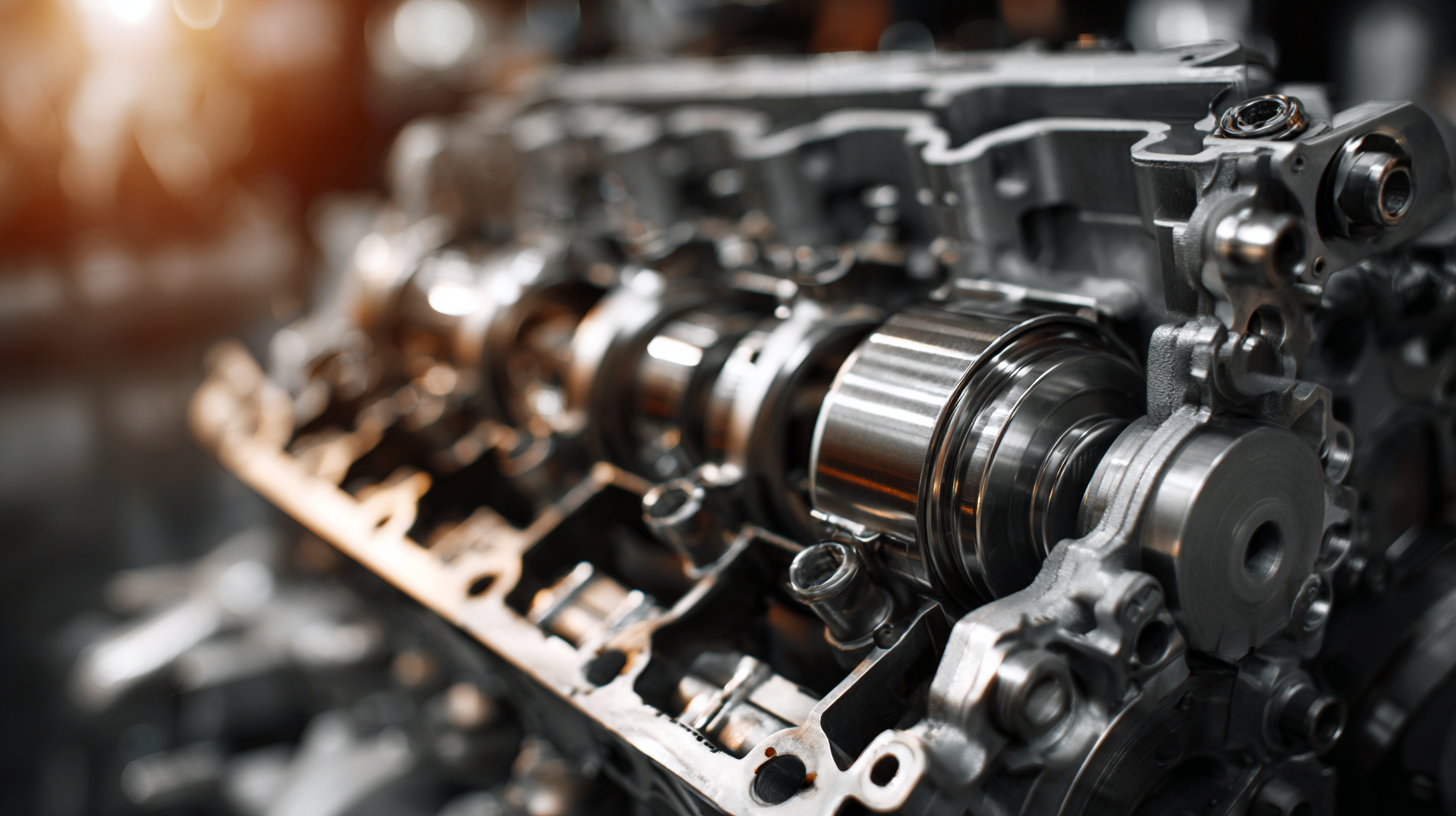12 Effective Tips for Choosing the Best Engine Parts
Choosing the right engine parts is crucial for ensuring the optimal performance and longevity of your vehicle. With a plethora of suppliers and products available in the market, the task can quickly become overwhelming. This guide aims to equip you with practical tips and insights to help you navigate the complexities of sourcing high-quality engine parts. We will explore essential factors to consider when assessing potential suppliers, from their reputation and reliability to the quality certifications of their products. By following these guidelines, you can make informed decisions that not only enhance your vehicle's performance but also contribute to its overall safety and efficiency. Whether you're a professional mechanic or a DIY enthusiast, understanding how to identify reputable sources for engine parts will empower you to maintain and upgrade your vehicle confidently.

Understanding the Importance of Quality Engine Parts in Performance
When it comes to optimizing vehicle performance, the quality of engine parts plays a crucial role that cannot be overlooked. High-quality components contribute not only to the engine's overall efficiency but also to its longevity. Inferior parts can lead to inadequate performance, increased wear and tear, and ultimately result in costly repairs. Choosing reliable brands that are recognized for their durability ensures that the engine operates at its best, maximizing power output and fuel efficiency.
Understanding the materials and construction of engine components is essential in making informed decisions. Superior engine parts are often built with advanced materials that can withstand extreme conditions, including high temperatures and pressures. Investing in these quality parts can enhance throttle response and improve acceleration, which is particularly critical for performance vehicles. Additionally, quality parts can provide peace of mind, knowing they have been rigorously tested for reliability and performance, thereby allowing drivers to enjoy a smoother and more enjoyable driving experience.

Identifying Reliable Suppliers: Key Characteristics to Look For
When it comes to selecting engine parts, finding reliable suppliers is crucial for ensuring quality and performance. One key characteristic to look for is a supplier’s reputation in the industry. Reading customer reviews and seeking testimonials can provide valuable insight into their reliability and the quality of their products. Look for suppliers that have been established for a significant amount of time, as longevity often indicates trustworthiness and stability in the market.

Another important factor is the range of products offered. A reputable supplier should provide a comprehensive selection of engine parts, which not only indicates their expertise but also allows for easier sourcing for various needs. Certification and warranty options are also critical; suppliers that offer warranties on their products demonstrate confidence in their offerings while giving you added security in your purchase. Lastly, consider the level of customer service and support, as responsive communication and knowledgeable staff can significantly enhance your buying experience. By focusing on these key characteristics, you can confidently choose a supplier that aligns with the quality standards you seek for your engine components.
Evaluating Supplier Reputation: Reviews, Ratings, and Recommendations
When it comes to selecting the best engine parts, evaluating supplier reputation is crucial. A reliable supplier not only offers quality products but also fosters trust and transparency in transactions. Begin your assessment by seeking out reviews and ratings from previous customers. Online platforms and forums often feature honest feedback that can guide your decision-making process. Look for suppliers who maintain a high average rating and respond positively to customer concerns.
Additionally, recommendations from fellow car enthusiasts or mechanics can provide valuable insights. Their firsthand experiences can point you toward trustworthy suppliers. Pay attention to their recommendations, especially if they highlight specific brands or products that consistently perform well. Don't hesitate to ask questions or seek clarification on warranties and return policies, as these factors are indicative of a supplier’s commitment to customer satisfaction.
Ultimately, choosing engine parts from reputable suppliers ensures not only durability and performance but also peace of mind that you are investing in quality components for your vehicle.
Comparing Prices vs. Quality: Finding the Right Balance
When it comes to selecting engine parts, the tug-of-war between price and quality can be daunting. Many enthusiasts rush to grab the most affordable options, often overlooking the long-term implications of their choices. While cost savings are important, compromising on quality can lead to subpar performance and increased maintenance costs down the line. Thus, finding the right balance between price and quality should be the primary goal for every buyer.
Quality should not be sacrificed for a lower initial cost. High-quality engine parts are typically manufactured with better materials and undergo more rigorous testing, ensuring durability and reliability. Investing a bit more upfront can save time and money on repairs and replacements later. However, this doesn’t mean that one should always go for the most expensive option. It’s vital to research and compare different brands and products. Look for reviews and testimonials to assess the reputation of manufacturers and discover which offer the best value without cutting corners on quality.
Ultimately, selecting engine parts should be a careful consideration of both price and performance to ensure a well-functioning engine and a smoother driving experience.
Building Long-term Relationships with Trusted Engine Parts Suppliers
Building long-term relationships with trusted engine parts suppliers is crucial for ensuring not only quality but also reliability in your automotive needs. According to a report by the Automotive Aftermarket Suppliers Association (AASA), nearly 70% of automotive repair shops prioritize supplier relationships when sourcing parts. Establishing strong partnerships with reputable suppliers can lead to better pricing, priority access to the latest technologies, and enhanced customer service.
To achieve this, consider the following tips. First, thoroughly evaluate the supplier's reputation in the market. Look for reviews and ratings from other customers, which can provide insight into their reliability and product quality. Additionally, check if they offer warranties or guarantees on their products; this is often a sign of confidence in the quality of the parts they provide.
Another key tip involves consistent communication with your chosen suppliers. Building rapport can result in advantageous terms and access to exclusive deals. Suppliers who value their relationships with customers are more likely to prioritize their needs and offer tailored solutions. As per a study by Frost & Sullivan, companies that invest in supplier relationships see a 20% increase in operational efficiencies. Thus, nurturing these connections can significantly impact your business outcomes in the long run.
12 Effective Tips for Choosing the Best Engine Parts
| Tip No. | Tip Description | Importance Level | Recommended Supplier Type |
|---|---|---|---|
| 1 | Research the engine specifications. | High | OEM Suppliers |
| 2 | Check for warranties and guarantees. | High | Reputable Manufacturers |
| 3 | Assess the supplier's reputation. | Medium | Well-Reviewed Dealers |
| 4 | Compare prices across different suppliers. | Medium | Various Market Vendors |
| 5 | Evaluate the availability of parts. | High | Local Suppliers |
| 6 | Understand the return policy. | Medium | Established Providers |
| 7 | Ask for recommendations from mechanics. | High | Trusted Technicians |
| 8 | Look for certifications and standards compliance. | Medium | Certified Parts Suppliers |
| 9 | Investigate the manufacturing process quality. | High | Quality-Focused Manufacturers |
| 10 | Consider aftermarket versus OEM parts. | Medium | Various Options |
| 11 | Review customer service quality. | High | Customer-Centric Suppliers |
| 12 | Maintain a good relationship with suppliers. | High | Long-term Partners |